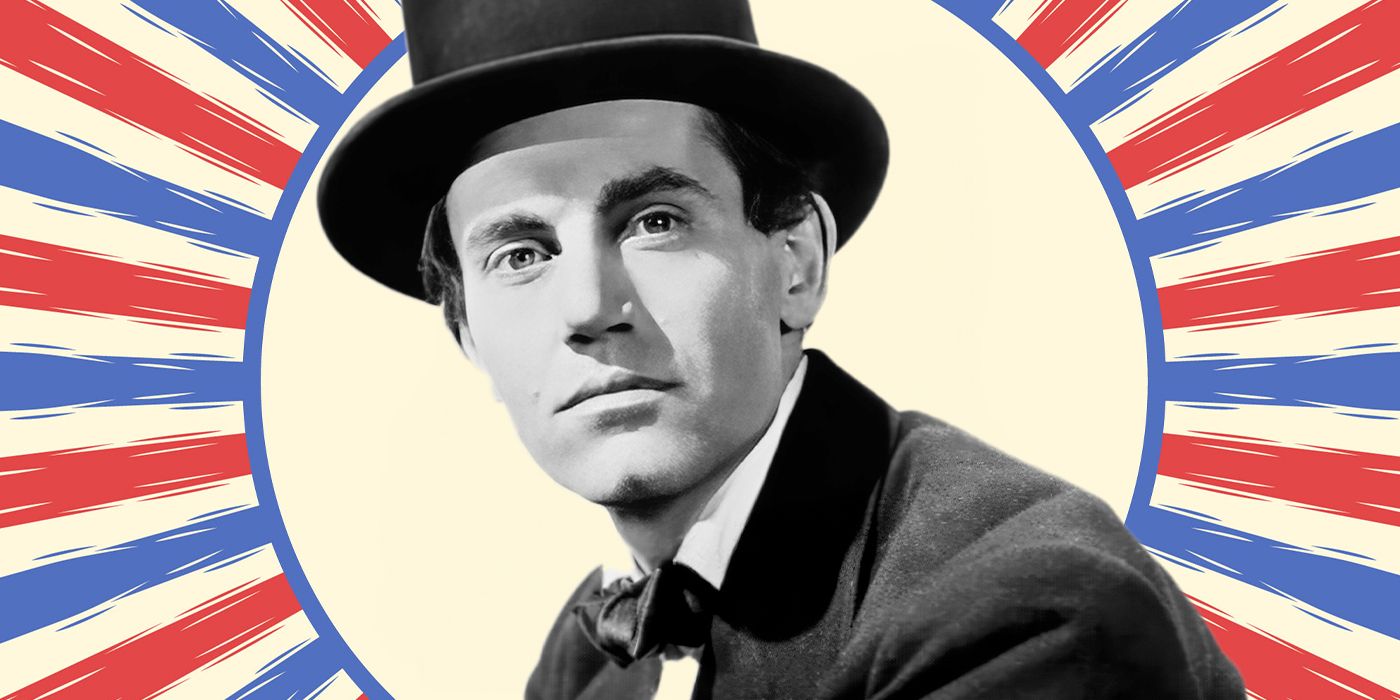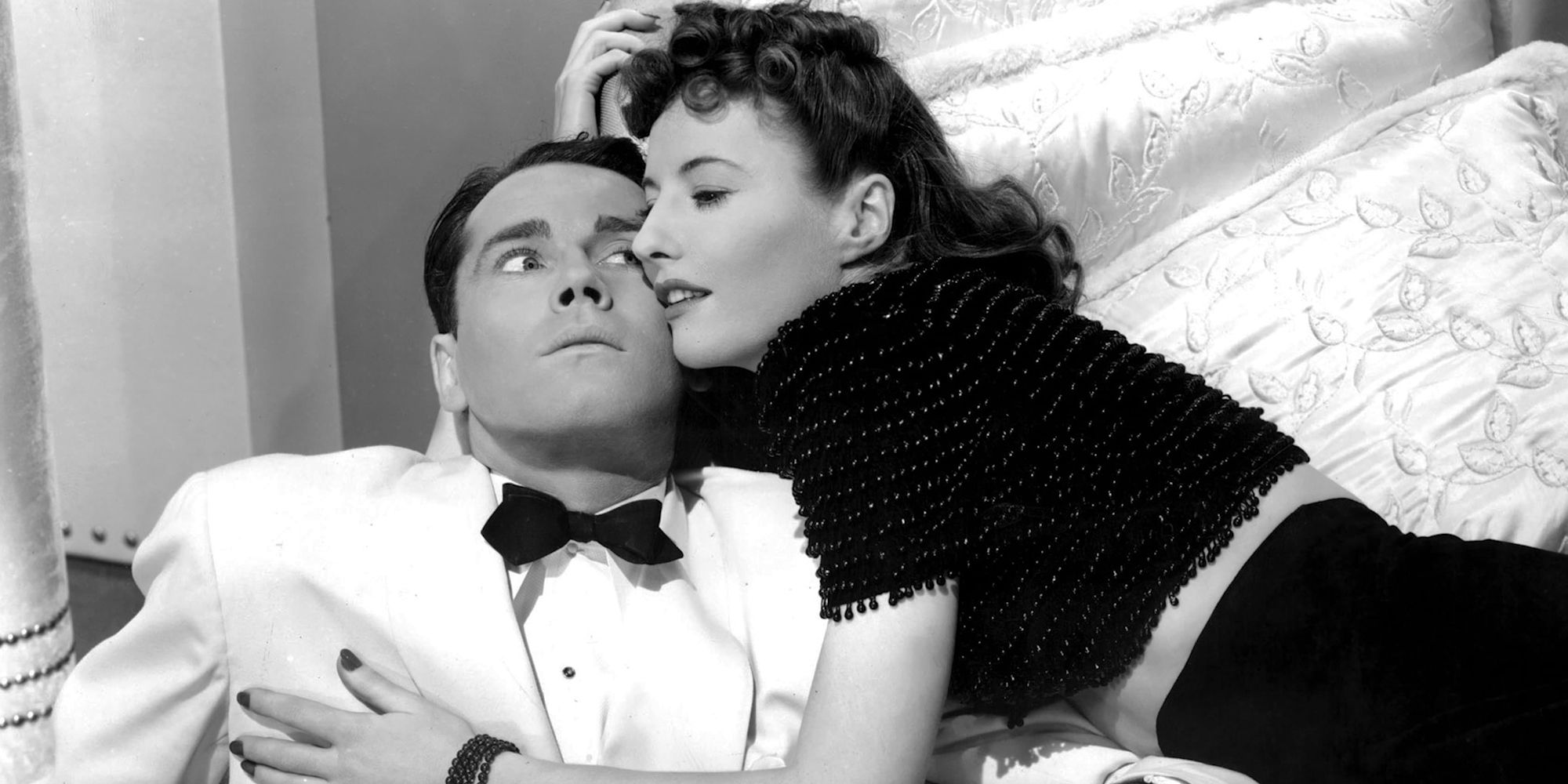The Big Picture
- Fonda’s role in
The Lady Eve
subverts his image as the heroic everyman, showcasing his versatility as an actor. - The film is a perfect example of a screwball comedy, with witty dialogue and a hilarious mismatched couple dynamic between Fonda and Stanwyck.
- Fonda’s performance captures the spirit of classic screwball comedies, showcasing his vulnerability and comedic timing in a role that challenges his beloved screen persona.
Throughout the history of classic Hollywood, Henry Fonda was applicable across many genres. He thrived as a sheriff or cowboy in Westerns under the direction of either John Ford or Sergio Leone. He was the idyllic everyday individual in dramas, who expressed nobility during the Dust Bowl in The Grapes of Wrath or inside a jury deliberation room in 12 Angry Men. Most of all, Fonda carried an esteemed presence that made him perfect for playing historical icons or courageous men in stories about social issues. One might suspect that Fonda would have been too polished to effectively situate himself within the confines of an absurdist screwball comedy from a master of the genre like Preston Sturges, but one of his most charming roles, as a naive heir in The Lady Eve, shows him playing against type while also confirming his endearing screen presence.
The Lady Eve
A trio of classy card sharks targets a socially awkward brewery heir, until one of them falls in love with him.
- Release Date
- March 21, 1941
- Director
- Preston Sturges
- Cast
- Barbara Stanwyck , Henry Fonda , Charles Coburn , Eugene Pallette
- Runtime
- 94 minutes
Henry Fonda Subverts His Image as the Heroic Everyman in ‘The Lady Eve’
During his acting prime during the 1940s, audiences could count on Fonda being the consummate everyman. His gentle affection towards others and the world around him aided his image as a stalwart hero, despite not possessing traditional archetypes of masculinity. Casting him as a bumbling fool in an acerbic screwball comedy like The Lady Eve seems like a misread of Fonda’s acting range, but the role valorizes the star’s earnest screen persona as much, if not more so, than any other film. Additionally, the 1941 film is arguably the crowning achievement of Preston Sturges’ career, who is renowned for his popularization of the screwball comedy genre. Even through farce, Sturges’ witty dialogue was refreshingly modern and grounded.
The Lady Eve centers around a team of con artists led by Jean, played by the dazzling comedic force and alluring femme fatale, Barbara Stanwyck. Jean, along with her father “Colonel” Harrington (Charles Coburn) and his business partner, look to swindle Fonda’s Charles Pike, a dedicated zoologist, and the heir to a financially prosperous brewery, Pike Ale. Charles is an awkward and naive book-smart man trapped in his insular world of studying snakes. In other words, he is the perfect target for a con. Ambivalent towards his family wealth, Charles is saved from the con after Jean takes a romantic interest in him. Throughout the film, their relationship falls through the pratfalls familiar in modern Rom-Coms, including misunderstandings that morph into revenge plots. The dramatic ploy of the film revolves around Jean, in the aftermath of Charles breaking off their relationship once he learns of her true identity, posing as a glamorous British aristocrat known as “the Lady Eve Sidwich,” so that he can fall for her once again and subsequently embarrass him.

The John Ford & Henry Fonda Courtroom Drama That Shows a Different Side of Abraham Lincoln
The quintessential Hollywood everyman gives a fresh and earnest portrayal of Honest Abe.
Sturges’ films, while classically entertaining and embracing genre staples, are usually satirical at heart. His other masterpiece released in 1941, Sullivan’s Travels, takes an acidic approach to the ridiculousness of the filmmaking industry. Film critic Andrew Sarris wrote that “Sturges repeatedly suggested that the lowliest boob could rise to the top with the right degree of luck, bluff, and fraud.”The Lady Eve‘s second act morphs into a comedy of manners that suits Sarris’ analysis of Sturges, but the characterization of Fonda’s Charles Pike reflects upon the filmmaker’s cynical worldview. Charles is barely even aware of the money that is soon to be passed down to him, and even if he is, he sure would rather spend time with snakes in the forest than indulge in wealth. Charles is understood to be an expert in his field, yet his inability to recognize that the titular Eve and Jean are the same person forces the viewer to reconsider his intelligence.
Henry Fonda Captures the Spirit of Classic Screwball Comedies in ‘The Lady Eve’
Beyond the textual implications of Sturges’ insight into how wealthy and successful people operate, Fonda captures the ideal spirit of the male lead of a screwball or romcom. Beneath his naivety, Fonda’s sweet and guileless nature perfectly contrasts with Jean’s conniving behavior. The character’s intense fixation on his practice is not out of self-involved vanity, but rather, an earnest commitment to snakes and the science of studying these menacing creatures. Earnestness was Fonda’s calling card throughout his prolific career. Placing him in a film where he is the target of a fraudulent scheme writes for itself. Sturges, who understood comedy as well as any writer/director of the big screen, knew that Charles could not be solely victimized. His sympathetic conviction in his worldview not only proves to be a weakness, but the audience can’t help but ultimately view him as a dimwitted and haphazard heir.
A screwball comedy is only as good as the chemistry between its two stars. The dynamic between Henry Fonda and Barbara Stanwyck in The Lady Eve is everything one could ask for in a screwball comedy served on a delicious platter–verbal gags, physical gags, a mismatched odd couple, and heartfelt romance. Fonda’s performance is especially humorous because never has a male romantic lead wanted to be in a screwball comedy less than Charles Pike. At first, he can’t be bothered by an exuberant and gorgeous woman like Jean, who develops an attraction to Charles and tries to abort the con against him. Like any warm-blooded man, he eventually becomes smitten with Jean. This is where Fonda’s vulnerability is integral to the story, as “like all young men who are truly and badly in love,” Roger Ebert wrote in his review for The Lady Eve, “his consciousness is focused on one thing: the void in his heart that only she can fill.”
The sequence in which Jean snuggles with Charles on a couch, playing with his hair while Charles expresses a face of complete shock–the way most people would when coming into contact with a snake, epitomizes Fonda’s exquisite brand of acting. Ebert argued that this sequence was both the funniest and sexiest scene in the history of romantic comedies. The overwhelming sensation of being courted by a vivacious woman has never looked so honest as it does through Fonda’s expression. It is funny but wholly sympathetic. The actor’s performance capitalizes on Sturges’ understated gender role reversal. In The Lady Eve, the woman is a strong-willed, domineering force who holds personal agency, and the man is a ditzy figure, often bamboozled by the surrounding situations, and needs love to round out his life.
‘The Lady Eve’ Both Complements and Challenges Henry Fonda’s Screen Persona
The role of the naive heir in The Lady Eve both leans into Henry Fonda’s strengths and challenges the star’s beloved screen persona. The sensitivity that backed iconic performances in The Grapes of Wrath and Alfred Hitchcock‘s docu-drama The Wrong Man was required for Charles Pike. In a performance that evokes the poetic beauty of John Ford, Fonda as the mythologized Tombstone sheriffWyatt Earp in My Darling Clementine is conveyed through an immense amount of reserved shyness, as he portrays Earp as an awkward romantic. A similar sentiment runs through Fonda’s inspired performance as Abraham Lincoln in Ford’s Young Mr. Lincoln, whose championing of the law and upholding good virtues is checked by his bewilderment surrounding his impending public influence.
Through the absurdity of his performance in The Lady Eve, Charles Pike presented itself as a challenge that Fonda gladly accepted. The actor is a force that demands reverence with every screen appearance. In 12 Angry Men, he manages to sway 11 of his fellow jurors to reconsider their “guilty” verdict in the respective murder trial by focusing on logic and reason rather than their indifference or prejudice. Fonda’s career swan song and Oscar-winning performance in On Golden Pond shows a curmudgeonly elderly man preserving his family legacy through restored bonds with his daughter. These are weighty parts that call for a star of titanic esteem. Of course, this is why we love Henry Fonda. However, we can also be thankful to Preston Sturges and The Lady Eve for allowing Fonda to loosen up and be a lovable goof in a perfect screwball comedy.
The Lady Eve is available to rent on Prime Video in the U.S.
Rent on Prime Video
Source link

